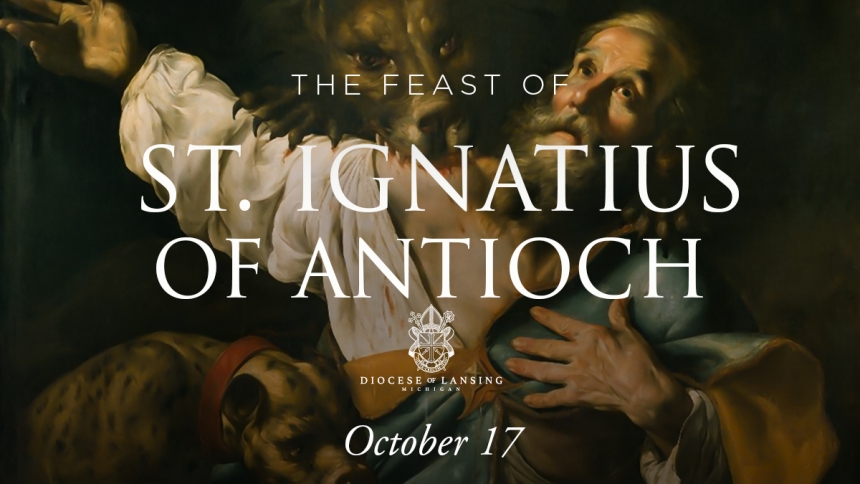
Why are the second century writings of Saint Ignatius, Patriarch of Antioch, considered so important? Because Ignatius was a follower of Saint John the Apostle who was the “disciple Jesus loved” (John 13:23). Hence, Ignatius' writings give us an accurate and authoritative glimpse into the life and practice of the early Church as founded by Jesus Christ himself. And what do his writing reveal? Jeremy Priest, pictured below, Director of the Office of Worship for the Diocese of Lansing, now explains. He writes:
“Observe well those who are heterodox in respect to the grace of Jesus Christ… who abstain from the Eucharist and from prayer, because they do not confess that the Eucharist is the Flesh of our Savior Jesus Christ, which suffered for our sins and which, in his goodness, the Father raised” (Ign.Smyr. 6.2)
This was written by Saint Ignatius of Antioch on the way to be martyred by the wild beasts in Rome’s Colosseum around 110 AD. What is most remarkable about the seven letters we have from Saint Ignatius is the astonishing way he illuminates almost every aspect of the Church’s perennial teaching on the Eucharist. Here’s a sample:
He encourages Christians to have one assembly gathered around the bishop and so “breaking one bread that is the medicine of immortality and the antidote against dying that offers life for all in Jesus Christ” (Ign.Eph. 20).
“Take care to observe [only] one Eucharist; for there is only one Flesh of Our Lord Jesus Christ and one cup of union with his Blood, one altar of sacrifice” (Ign.Phil. 4).
To the Romans he writes that he takes “no pleasure in corruptible food or in the delights of this life. I want the Bread of God, which is the Flesh of Jesus Christ, who is of the seed of David; and as drink I want his Blood, which is incorruptible love.”

